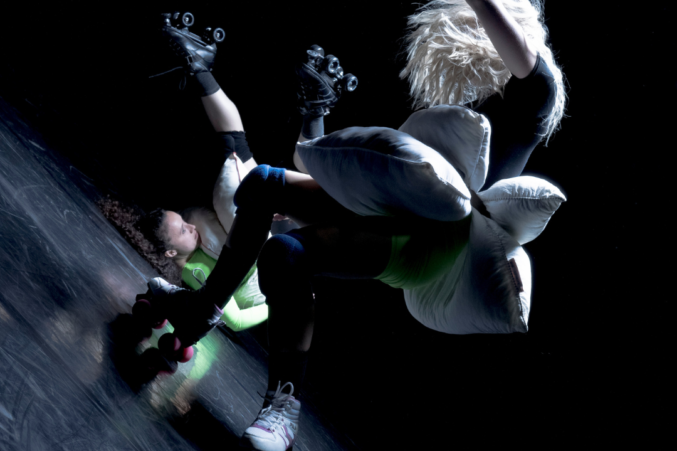Biography
Sarah Deppe began her training in classical and contemporary dance at the Lille Conservatory. In 2013, she joined the Ballet du Nord – Centre Chorégraphique National de Roubaix under the direction of Olivier Dubois, where she obtained her degree in Choreographic Studies in Contemporary Dance in 2016. At the same time, she followed a three-year dance training at the University of Lille and took part in the exhibition Portraits of Louis Ziegler, an interdisciplinary project that combines dance and voice with philosophical texts by Malebranche, Descartes and Pascal.
During this period, she worked on creations by choreographers such as Meytal Blanaru, Adam Benjamin, Louis Ziegler and Béatrice Goetz. Sarah is currently pursuing a master’s degree in choreography at the Royal Conservatory of Antwerp and is affiliated with the company Sine Qua Non Art in La Rochelle (France).
She participated in the creation of Jinjeon at the Théâtre du Luxembourg with Jill Crovisier and in the formation Praxis #1 under the direction of Hervé Robbe. While continuing her work within the Belgian artistic scene, she collaborates on new creations for the Théâtre National de Bruxelles and other theatre companies.
In residentie PILLOW SAFETY
01.03.2024 – 01.03.2024

PILLOW SAFETY is a performance that explores possible definitions of “female virility” through a sport with deep-rooted feminist roots.
Roller derby originated and spread in the United States and is a physical team sport on roller skates, practiced primarily by women. The sport is played on an oval circuit – the track – on which two teams of five skaters compete against each other. Within each team, there are two main roles: the “jammer”, who must complete as many laps as possible, and the “blocking team”, whose job it is to prevent the opponent from scoring. The team with the most laps within sixty minutes wins.
In addition to its competitive dimension, roller derby is also a cultural movement that revolves around self-expression and the deconstruction of gender norms. The sport breaks through the traditional association of strength, aggression and courage as exclusively masculine qualities. For this reason, roller derby is a subject of analysis within Anglo-Saxon feminist and gender studies.
Etymologically, virility means “the male age, the sex of the man, the male character”. The makers of PILLOW SAFETY pose the question: can we redefine a feminine virility that is neither pejorative nor contradictory? By claiming the physical and moral qualities – strength, power, endurance and courage? Or by critically dissecting and loosening the concepts themselves? Or is the ultimate solution to completely dismantle the myth of virility? In contrast to the closed circuit of the derby track, this performance opens up new perspectives and escape routes to a desirable future.
The performance draws on a rich palette of materials – choreographic, scenographic, cosmetic and political – that are inherent to roller derby culture. On the floor, black and yellow tape marks a space that is both playing field and battleground. On stage are two performers, equipped with roller skates, mouth guards and knee pads, who embrace the DIY (Do It Yourself) aesthetic that is characteristic of both roller derby and pop and punk culture.
Oral communication also plays a prominent role: in roller derby, teams often communicate through shouting and onomatopoeia to regroup or to position themselves strategically on the field. Sometimes the performers are teammates, sometimes opponents. They challenge each other, intertwine their skates, confront and support each other in an intriguing dialogue of strength and vulnerability, action and reaction, dominance and surrender, victory and defeat.

